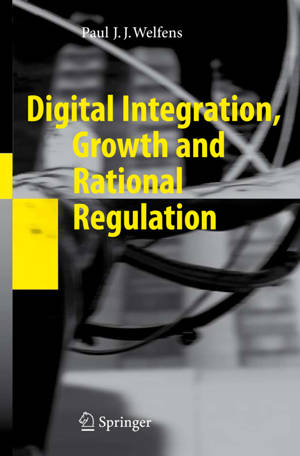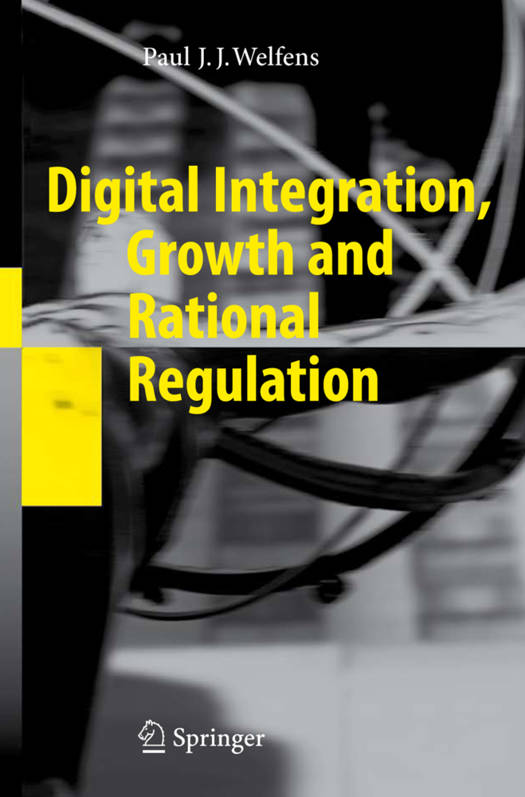
Je cadeautjes zeker op tijd in huis hebben voor de feestdagen? Kom langs in onze winkels en vind het perfecte geschenk!
- Afhalen na 1 uur in een winkel met voorraad
- Gratis thuislevering in België vanaf € 30
- Ruim aanbod met 7 miljoen producten
Je cadeautjes zeker op tijd in huis hebben voor de feestdagen? Kom langs in onze winkels en vind het perfecte geschenk!
- Afhalen na 1 uur in een winkel met voorraad
- Gratis thuislevering in België vanaf € 30
- Ruim aanbod met 7 miljoen producten
Zoeken
€ 139,95
+ 279 punten
Uitvoering
Omschrijving
With the Lisbon Agenda the European Council has set ambitious goals for 2010, namely to make the Community the most dynamic knowledge-based economy in the world. This goal clearly indicates that the Council, the Commission and the European Parliament are fully aware of the high economic, political and social relevance of information and communi- tion technology, including modern digital services whose broad availab- ity is desirable from the perspective of all major users groups: Firms, private households and government agencies. The Commission indeed has emphasized that the i2010 project is a major pillar of the policies with a focus on the Lisbon Agenda: Creating faster broadband networks in the EU and providing more diversified and more high-quality services at the same time will indeed be crucial for the Union if the growth potential of modern eCommunications is to be fully exploited. Naturally, the telec- munications sector evolution has to be discussed in the context of the overall expansion dynamics of the information and communication te- nology (ICT) sector. At the same time the competition policy framework will affect digital dynamics in OECD countries. In the EU the interplay between supranational regulations and national regulations is quite imp- tant for the development of the telecommunications sector. This sector is subject to regulation for which the EU has created a framework in 2003 which is up for review in 2006.
Specificaties
Betrokkenen
- Auteur(s):
- Uitgeverij:
Inhoud
- Aantal bladzijden:
- 187
- Taal:
- Engels
Eigenschappen
- Productcode (EAN):
- 9783540745945
- Verschijningsdatum:
- 26/10/2007
- Uitvoering:
- Hardcover
- Formaat:
- Ongenaaid / garenloos gebonden
- Afmetingen:
- 162 mm x 239 mm
- Gewicht:
- 426 g

Alleen bij Standaard Boekhandel
+ 279 punten op je klantenkaart van Standaard Boekhandel
Beoordelingen
We publiceren alleen reviews die voldoen aan de voorwaarden voor reviews. Bekijk onze voorwaarden voor reviews.









